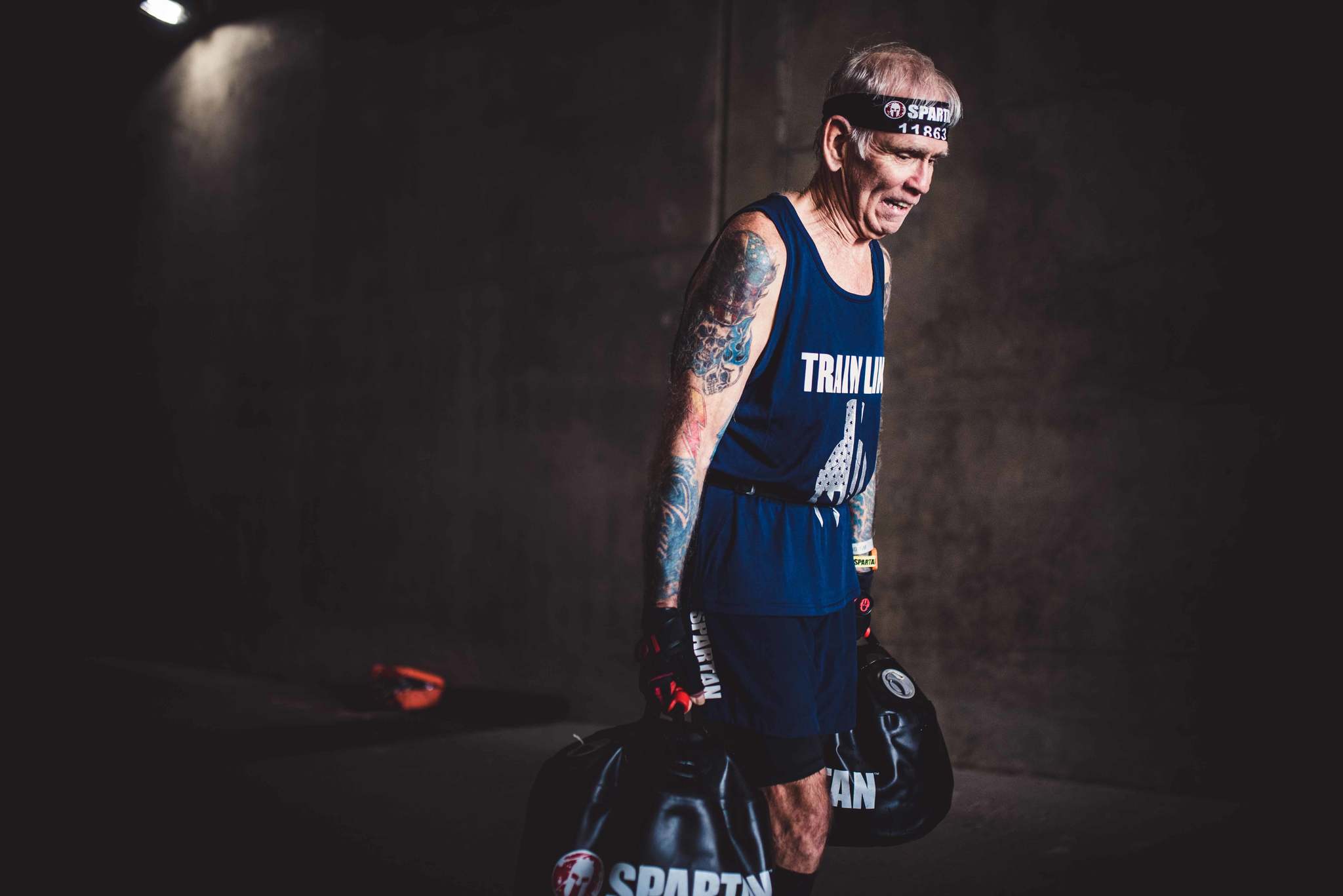12 of the Best Training-Friendly Nutrition Tips, According to Experts

Centering your nutrition around poor lifestyle habits can consistently and negatively impact your energy levels, performance and training efforts, and your muscle recovery processes.
“The first step to eating well is to incorporate both macronutrients (carbs, protein, and fat) and micronutrients (vitamins and minerals) into your diet,” Kelly Jones, MS, RD, CSSD, LDN, says.
Incorporate them, that is, in well-balanced ratios that are tailored to your specific training regimen in order to best support and enhance your workout performance, mindset and mental stamina, appetite regulation, and muscle gain, fat loss, or maintenance over time.
Related:
Nutrient intake can either benefit your body or hold you back from achieving your best results, but it's not just what you're eating that matters — meal timing is extremely important as well. So, incorporating a holistic approach to syncing your eating habits with your training will ensure that both schedules continue to run smoothly.
To do that, aim for a variety of nutrients and foods, and — of course — only consume heavily-processed foods in moderation. These 12 top nutritional tips and recommendations — straight from dietitians — will boost your energy and efficiency in training sessions and help you achieve more profound results, regardless of your training level and workout intensity.
12 Expert Nutrition Tips From Dietitians

1. Save Fibrous Foods for Post-Workout
Jones explains that some healthy foods, such as fibrous greens and beans, can be hard on the stomach and cause gastrointestinal distress mid-workout if consumed before training. However, you don't have to avoid these foods, just reserve them for post-training meals or active recovery days when your body will be more receptive to higher fiber and protein intake (and need it, too!). Once you’re in the clear, enjoy high-fiber foods to stay regular and to boost your gut health, mood, and immune system.
2. Ditch Restrictive Diets and Stop Cutting Out Carbs
Avoid fad diets with restrictive eating patterns and make sure you eat enough carbohydrates and calories — especially on training days — as low intake puts you at risk for under-fueling and malnourishment, both of which will hinder workout performance.
Keep your carbs complex in nature and readily-available in your diet.
“Eating adequate carbohydrates helps the body store glycogen in the muscles, which is the most readily-available fuel source for muscle to reach and use to maintain high intensity levels during a workout,” Jones says.
Related: How to Choose the Right Carbs for the Right Race
And make sure to eat regularly throughout the day when training, as your body needs fuel soon after exercising and can’t wait too long with substantial intervals.
“It’s important to get in both carbohydrates and protein at each meal and snack throughout the day to optimize muscle repair," Jones says. "On top of energy, the protein-carb combination has nutrients, vitamins, minerals, and antioxidants, which all play a role in recovery processes."
3. Enjoy "Less Healthy" Foods as Indulgences (and in Moderation)
It’s okay to indulge in foods that aren’t so healthy, but that you enjoy. However, save those for special occasions and make the bulk of your calories nutrient-rich. Fried foods that are high in saturated fat should be eaten only on rest days and sparingly, as they don't make great fuel for when you have a tough training session coming up later in the day (or even the following day).
“Some people are more sensitive than others, but high-saturated fat foods may cause digestive upset for several days,” Jones says.
Related: 5 Reasons That Spartans Eat Whole Food-Fueled Meal Plans
Take note of how fried and fattening foods affect your GI system in particular, and regulate indulgences accordingly.
4. Eat More Carbohydrates From Plant Foods
“Not only do carbohydrate-rich foods help you optimize your glycogen stores, but your energy availability during exercise as well as your ability to reach high intensities during training and competition depend on carbohydrate intake,” Jones says.
Since carbs can come from plants in wholesome, non-processed sources, look to whole grains, starchy and non-starchy vegetables, bright and colorful fruits, and other plant proteins like beans and legumes. A higher intake of vitamins and minerals will optimize your metabolism to promote a faster, more efficient recovery.
5. Spread Your Protein Intake Throughout the Day
Your body can’t absorb an infinite amount of protein at once — there's a limit. You’re better off spreading intake out to maximize absorption all day long.
“Research shows the importance of spreading protein intake out into about four or five meals or snacks over the course of the day,” Jones says. "A more regular intake of moderate amounts of protein provides a consistent delivery of essential amino acids."
Plus, your body needs the steady flow to stay energized and to repair damaged muscle tissue.
6. Don’t Skimp on Salt
Salt isn’t the enemy, and you actually need salt when training.
“Including iodized salt in your cooking helps you better maintain fluid balance while also supporting normal thyroid function, which impacts metabolism," Jones says. "Any form of training means that your nutrient needs are different than those of the average American, so typical recommendations to reduce sodium don’t apply to you — unless you’ve been told otherwise by a physician."
Related: The Surprising Key to Fat Loss: How Muscle and Metabolism Really Work
Sprinkle salt on roasted veggies, baked potatoes, meat, fish, eggs and hash browns, or a slice of avocado toast with breakfast.
“This ensures that you’re getting enough sodium to maintain fluid balance as well as iodine to support the metabolism,” she says.
7. Eat Fat to Burn Fat (Just Make Sure It’s the Right Kind)
Include unsaturated fats in your diet regularly, with the exception of a pre-workout snack, as it can weigh you down during that pre-workout window.
“Fat is important to supply energy, promote satiety between meals and snacks, and aid in absorption of fat soluble nutrients, with unsaturated fats and omega-3s being preferable,” Jones explains.
Related: This Lesser-Known Fat Will Actually Increase Your Metabolism
A tip? Jones says that plant and fish fats generally contain unsaturated fats in the ideal amounts and ratios that the body naturally prefers, so increase your intake in the week confidently.
8. Eat Your Post-Workout Snack Within 30 Minutes of Exercise
Be prompt with post-workout fueling. The longer and more intense your training sessions are, you may experience appetite suppression after exercising. However, resist the urge to wait before eating and instead consume carbs, protein, and electrolytes as soon as possible to optimize glycogen replenishment following training.
The sooner you eat protein and carbs, the better, but definitely don’t wait more than an hour (and really shoot within a 30-minute window for a sufficient, speedy recovery).
Related: This Is What Happens to Your Body If You Don't Eat After a Workout
“If you don’t have an appetite for solid food, grab a yogurt and blend it with fruit to make a protein-rich fruit smoothie,” Jones says.

9. Limit Alcohol Consumption (or Ditch It All Together)
“Alcohol should always be consumed in moderation, as it's a macronutrient that the body prioritizes first for fuel, meaning anything consumed around the time alcohol is will then be automatically stored as fat instead of being burned and used for energy,” Trista Best, MPH, RD, LD, says.
Alcohol can also cause dehydration and trigger cravings for sugary or greasy foods, which aren’t doing your body any favors.
Related: Why Becoming Sober Curious May Make You Fitter and Faster Than Ever
“Alcohol consumption can lead to poor performance issues, a nasty headache — especially if you're not drinking enough water — and other adverse side effects that will negatively impact your training efforts,” she says.
10. Eat a Pre-Workout Snack, but Keep Timing in Mind
Fuel before high-intensity workouts, since the body needs the energy boost to maintain exertion and stamina. However, if it’s a meal, make sure to time it long enough before your training session to avoid stomach discomfort. And if it’s a light snack, keep it lower in fiber and fat, and higher in fast-acting carbohydrates for the body to immediately use.
“Eating between one and three hours before — and no sooner — is the best way to fuel your body with a focus on carbs, moderate protein, and keeping the fat content low to provide the proper macronutrients without potentially causing gastrointestinal issues and muscle cramps,” Best says.
Related: The One Food You Should Eat Before Every Run
With intense workouts, most of the glycogen in our body and muscles gets depleted, so you’ll need to replenish after, too. But by including these fast-acting carb sources, you’re giving your body a little extra in stores, so you might have less work to do on boosting your supply following your workout.
The same goes with protein and an array of amino acid content, which muscles need to repair broken-down muscle tissue efficiently. Don’t focus too heavily on increasing pre-workout protein as you would with carbs, though, as you don’t want to feel lethargic and heavy mid-workout. (Prioritize eating protein post-workout.)
11. Eat Foods With High Water Content to Complement Fluid Intake
Hydration is needed consistently throughout the day, and especially before and after training sessions.
“A high-intensity workout or race calls for even more of a need to hydrate before and rehydrate after, with electrolyte-rich, low-sugar beverages and supplements, water, and foods with greater water content being great options to further help your efforts,” Best says.
Related: This Is Why Hydration Is More Important Than You Think
Staying hydrated with fruits, vegetables, and adequate water and fluid intake during the day helps prevent muscle cramping and improves the health of your muscle cells and the recovery process after strenuous activity.
For even more benefits, choose foods with high water content and electrolytes that provide enhanced replenishment and balanced hydration levels, such as avocado, leafy greens, olives, and pickles.
12. Eat the Rainbow With Colorful Fruits and Vegetables
Antioxidants speed up muscle recovery and protect your heart and muscles from oxidative stress, which occurs due to aging and exercising.
“Antioxidants are an essential aspect of recovery because muscles are broken down during high-intensity workouts and there is potential for oxidative stress," Best says. "While this is natural, it’s damaging. Antioxidants help reverse the stress and prevent further damage at a cellular level."
And if you must eat something 10-15 minutes before a training session, be clear on what works and what doesn't.
“For such a small window of time, you should eat a tiny and easy-to-digest snack with simple carbs, which you can find in most fruit,” Best explains.
If you don't have fresh fruit handy, hydrate before with a sports gel for electrolytes as fuel, as opposed to drinking just plain water. You can even take an electrolyte booster supplement or sports gel with you for mid-workout fuel on any longer, rigorous training sessions or runs (and especially when working out in the heat). That little bit of added fuel will keep you safe and benefit your endurance levels and stamina.












